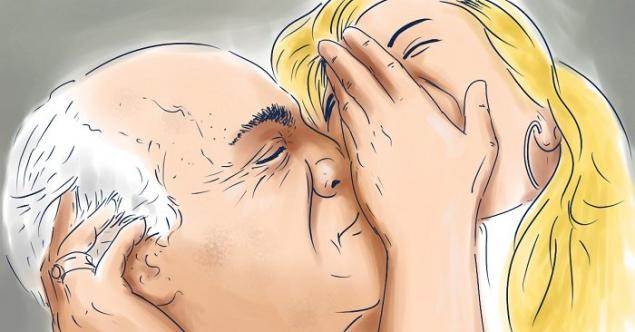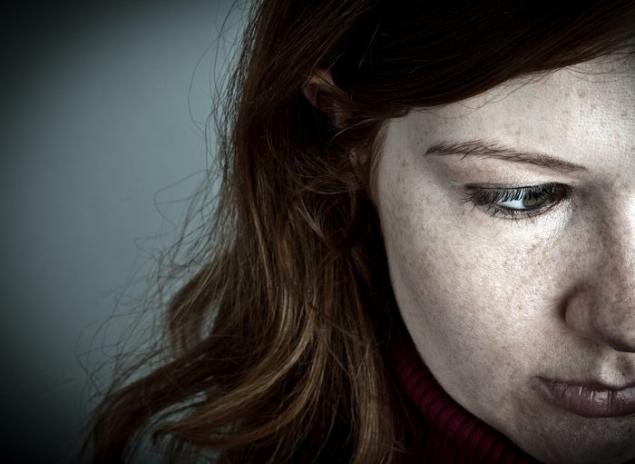174
How to Become a Happy Woman
Autumn is not only beautiful fallen leaves of different colors, a cozy blanket, a book in hand and delicious coffee. It is often during this period that many are attacked by the autumn blues.
It is worth the weather after the summer at least a little worse, some of us immediately feel hopelessness, take a break to work from home, but in fact they only want to sit on the windowsill and be sad, and with a glass of wine in their hand or beer, who likes what more.
It is believed that all these are the first bells. autumnal depressionWhich always sneaks up unnoticed. But everyone wants to feel joy and happiness, regardless of the time of year and the weather outside.

DepositPhotos
On the Internet, there is a huge amount of advice about How to achieve happiness. They are often given by people who have no idea what they are talking about.
Let us not blindly believe in pseudo-astrologers and other “experts”, but turn to science. For example, neuroscientists. They study the gray matter in your head all day long and know best what it takes to make us happy.

DepositPhotos
And today's edition. "Site" I want to share with you 4 things you know. necessaryAccording to American neuroscientist Alex Korb.
Let’s start with what many people don’t understand. autumn It is quite logical to explain a number of biochemical processes occurring in the body in the period from September to October. Apathy, loss of strength and the inability to perform basic work that does not require effort at any other time, are explained not by laziness, but by the imbalance between the two hormones - serotonin and melatonin.

DepositPhotos
But autumn depression is not only associated with hormonal changes. Many factors play an important role, including psychological.
How to Become a Happy Woman
Tell me how you feel.
Are you sick? What is it: longing, sadness, anger, fear, anxiety, or maybe resentment? Try to communicate your feelings. This simple action is enough to make you feel better! You think that's crazy? Your brain thinks otherwise.

DepositPhotos
To confirm this fact, a study was conducted in which all participants were shown photos of people with different facial expressions. At the same time, a special apparatus recorded the reaction of people. As expected, the amygdala reacted to the emotions depicted.
However, when the participants were asked to name these emotions, their ventrolateral prefrontal cortex became activated and their amygdala activity decreased. In other words, naming It reduced their impact on humans.

DepositPhotos
Make a decision.
Making a decision, especially a very important one, is sometimes oh how not easy! You think long, weigh the pros and cons. Until the matter is closed, you are in limbo. Unaccepted decision as if hanging over your head, preventing you from enjoying life and moving forward. But once the decision is made, you start to feel light and relieved, you notice? This is no accident! Neuroscience proves that decision making Reduces anxiety and anxiety, and helps solve problems.

DepositPhotos
When making decisions, a person creates an intention and sets a goal; all this creates a positive effect on the prefrontal cortex, reducing anxiety and anxiety.
In addition, decision-making helps to reduce the activity of the striatum, which usually inclines us to negative impulses and actions. Decision-making can change the perception of the world, which helps to find a solution to the problem and calm the limbic system.

DepositPhotos
Relationships with other people
“Touch other people more!” said 20-year neuroscientist Alex Korb after a study by his team. All participants in the experiment played a computer game to throw the ball. One player threw the ball and the other returned it. The trick was that the person sat only on one side of the screen - the computer threw the ball back.
However, participants were told that the characters on the screen are controlled by live people. And what happened when those other people refused to return the ball? The participant's brain reacted the same way it reacted to physical pain. That is, our brain perceives rejection as a broken arm.

DepositPhotos
The sense of rejection by society involves the anterior cingulate cortex and the central lobe of the brain, as does physical pain. In other words, relationships with other people are very important for the brain.
You want to take them to the next level? Touch people physically (of course, only close ones).

DepositPhotos
I also suggest you learn about 13 things that take away happiness. This article is addressed to those who want to grow above themselves.
Do you agree with these neuroscientists? I’ve made it a rule to thank myself every morning for my life. Psychologists advise you to think about at least five positive things in your life.
For example, that you are a kind, sympathetic person, that you have a soul mate or are alive parents. There are many options, but the daily implementation of this rule. It will bring amazing changes. into your life! Try it and see for yourself.
Share useful tips with your friends on social networks, perhaps for someone now it can be very relevant!
It is worth the weather after the summer at least a little worse, some of us immediately feel hopelessness, take a break to work from home, but in fact they only want to sit on the windowsill and be sad, and with a glass of wine in their hand or beer, who likes what more.
It is believed that all these are the first bells. autumnal depressionWhich always sneaks up unnoticed. But everyone wants to feel joy and happiness, regardless of the time of year and the weather outside.

DepositPhotos
On the Internet, there is a huge amount of advice about How to achieve happiness. They are often given by people who have no idea what they are talking about.
Let us not blindly believe in pseudo-astrologers and other “experts”, but turn to science. For example, neuroscientists. They study the gray matter in your head all day long and know best what it takes to make us happy.

DepositPhotos
And today's edition. "Site" I want to share with you 4 things you know. necessaryAccording to American neuroscientist Alex Korb.
Let’s start with what many people don’t understand. autumn It is quite logical to explain a number of biochemical processes occurring in the body in the period from September to October. Apathy, loss of strength and the inability to perform basic work that does not require effort at any other time, are explained not by laziness, but by the imbalance between the two hormones - serotonin and melatonin.

DepositPhotos
But autumn depression is not only associated with hormonal changes. Many factors play an important role, including psychological.
How to Become a Happy Woman
- An important issue
At the very first signs of autumn melancholy, ask yourself one question: “What am I grateful for?” Sure, you'd say that's fine, but does gratitude have a biological effect on the brain? The interesting thing is, yes! And this is fully justified by science.
DepositPhotos
It turns out that the known antidepressant Bupropion stimulates the production of the neurotransmitter dopamine. So does the feeling of gratitude.
Do you know what Fluoxetine does? Antidepressant action is combined with stimulant. It improves mood, reduces tension, anxiety and feelings of fear. In fact, it stimulates the production of the neurotransmitter serotonin. So does the feeling of gratitude.
Increased serotonin levels One of the main effects of gratitude. When you think about what you’re grateful for, you focus on the positives of life. This simple action increases the production of serotonin in the anterior cingulate cortex of the brain.
Tell me how you feel.
Are you sick? What is it: longing, sadness, anger, fear, anxiety, or maybe resentment? Try to communicate your feelings. This simple action is enough to make you feel better! You think that's crazy? Your brain thinks otherwise.

DepositPhotos
To confirm this fact, a study was conducted in which all participants were shown photos of people with different facial expressions. At the same time, a special apparatus recorded the reaction of people. As expected, the amygdala reacted to the emotions depicted.
However, when the participants were asked to name these emotions, their ventrolateral prefrontal cortex became activated and their amygdala activity decreased. In other words, naming It reduced their impact on humans.

DepositPhotos
Make a decision.
Making a decision, especially a very important one, is sometimes oh how not easy! You think long, weigh the pros and cons. Until the matter is closed, you are in limbo. Unaccepted decision as if hanging over your head, preventing you from enjoying life and moving forward. But once the decision is made, you start to feel light and relieved, you notice? This is no accident! Neuroscience proves that decision making Reduces anxiety and anxiety, and helps solve problems.

DepositPhotos
When making decisions, a person creates an intention and sets a goal; all this creates a positive effect on the prefrontal cortex, reducing anxiety and anxiety.
In addition, decision-making helps to reduce the activity of the striatum, which usually inclines us to negative impulses and actions. Decision-making can change the perception of the world, which helps to find a solution to the problem and calm the limbic system.

DepositPhotos
Relationships with other people
“Touch other people more!” said 20-year neuroscientist Alex Korb after a study by his team. All participants in the experiment played a computer game to throw the ball. One player threw the ball and the other returned it. The trick was that the person sat only on one side of the screen - the computer threw the ball back.
However, participants were told that the characters on the screen are controlled by live people. And what happened when those other people refused to return the ball? The participant's brain reacted the same way it reacted to physical pain. That is, our brain perceives rejection as a broken arm.

DepositPhotos
The sense of rejection by society involves the anterior cingulate cortex and the central lobe of the brain, as does physical pain. In other words, relationships with other people are very important for the brain.
You want to take them to the next level? Touch people physically (of course, only close ones).

DepositPhotos
I also suggest you learn about 13 things that take away happiness. This article is addressed to those who want to grow above themselves.
Do you agree with these neuroscientists? I’ve made it a rule to thank myself every morning for my life. Psychologists advise you to think about at least five positive things in your life.
For example, that you are a kind, sympathetic person, that you have a soul mate or are alive parents. There are many options, but the daily implementation of this rule. It will bring amazing changes. into your life! Try it and see for yourself.
Share useful tips with your friends on social networks, perhaps for someone now it can be very relevant!


























